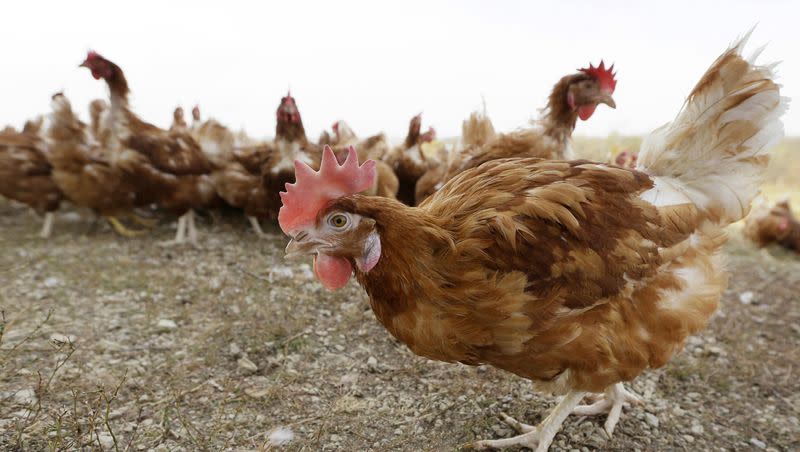Biden administration considers vaccinating poultry against bird flu

In 2005, World Health Organization officials warned that vaccinating chickens against avian flu was actually contributing to the spread of the disease.
Nearly two decades later, a large spike in avian flu cases, the death of tens of millions of chickens and the steep increase in egg prices are among factors driving the Biden administration to consider mass vaccination of poultry, though no decision has been made and other ideas are circulating, too.
“There are a range of options the United States regularly considers when there is any outbreak that could affect the security and safety of the United States’ food supply,” a White House National Security Council spokesperson said in a statement Monday, according to The Hill. “Right now, we are focused on promoting and enhancing high-impact biosafety practices and procedures.”
Meanwhile, the Centers for Disease Control and Prevention said the risk for an avian flu pandemic in the human population is low. But a pandemic-weary nation may be averse to taking a chance it could happen. And more is known about how to do a mass vaccination, as well.
According to The New York Times, “The bird flu outbreak, which began early last year, is the biggest in the nation’s history, affecting more than 58 million farmed birds in 47 states, as well as birds in the wild. It has already spilled over into mammals, such as mink, foxes, raccoons and bears, raising fears that the virus that causes it, known as H5N1, could mutate and start spreading more easily among people.”
The CDC sent samples of flu virus for drug makers to have on hand if a vaccination needs to be created. The Times said the CDC is also investigating whether test manufacturers “would be willing to develop tests for H5N1, similar to those used for the coronavirus.”
Low risk to humans
According to the World Health Organization, just nine cases of avian flu have been diagnosed in humans in the last 15 months. And none of those cases appear to suggest people are spreading bird flu to other people.
Related
The Occupational Safety and Health Administration notes that “there is no current evidence of ongoing spread among people.” Its recommendations for preventing spread among those whose work puts them in direct contact with poultry include personal protective equipment like gloves and safety goggles, containment measures to prevent spread among the birds and careful and complete steps to keep areas disinfected and wild birds that might harbor the disease out.
Tricky process?
Per The New York Times, “Farm birds are already vaccinated against infectious poultry diseases, such as fowlpox. But an avian influenza vaccination program would be a complex undertaking, and poultry trade associations are divided over the idea, in part because it might spawn trade restrictions that could destroy the $6 billion poultry export industry. Dr. Carol Cardona, an expert on avian health at the University of Minnesota, said that the fear of trade bans was a huge barrier to the mass vaccination of poultry.”
A big barrier to mass vaccination of chickens is that no vaccination has been authorized for use against H5N1, Mike Stepien, spokesman for the Department of Agriculture, told the Times. And while a number of vaccines are licensed against avian flu, how well they work against the strain that’s circulating is not known.
Vaccination of birds against avian flu is routinely done in several countries, including China. And Reuters reported last month that other countries, also concerned about H5N1, are considering mass vaccination of poultry, as well.
“The goal is that our animals don’t fall ill and that they don’t spread the virus,” Herve Dupouy told Reuters from his farm in Castelneu-Tursan in southwestern France. “Our job as farmers is not to gather dead animals.”
The article said, “Like Dupouy, more and more governments around the world are reconsidering their opposition to vaccines as culling birds or locking them inside has failed to prevent bird flu returning to decimate commercial flocks year after year.”
As for those egg prices, per The Hill, “The average price of a dozen eggs was $4.82 in January, up from an average of $1.93 a year earlier, according to Purdue University data.”

